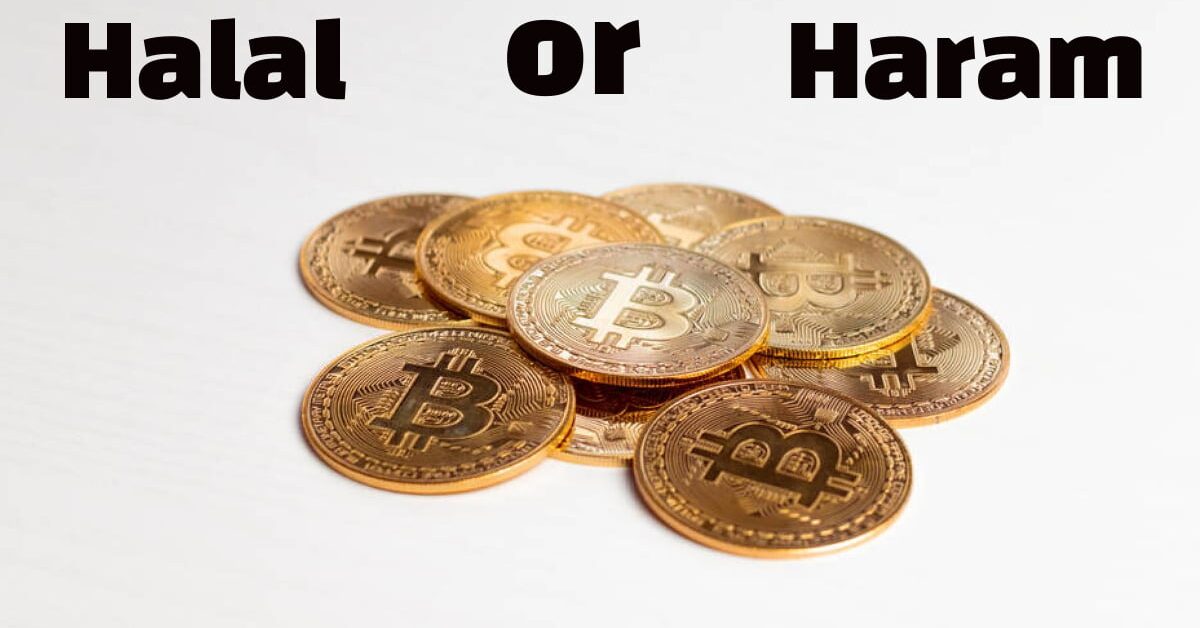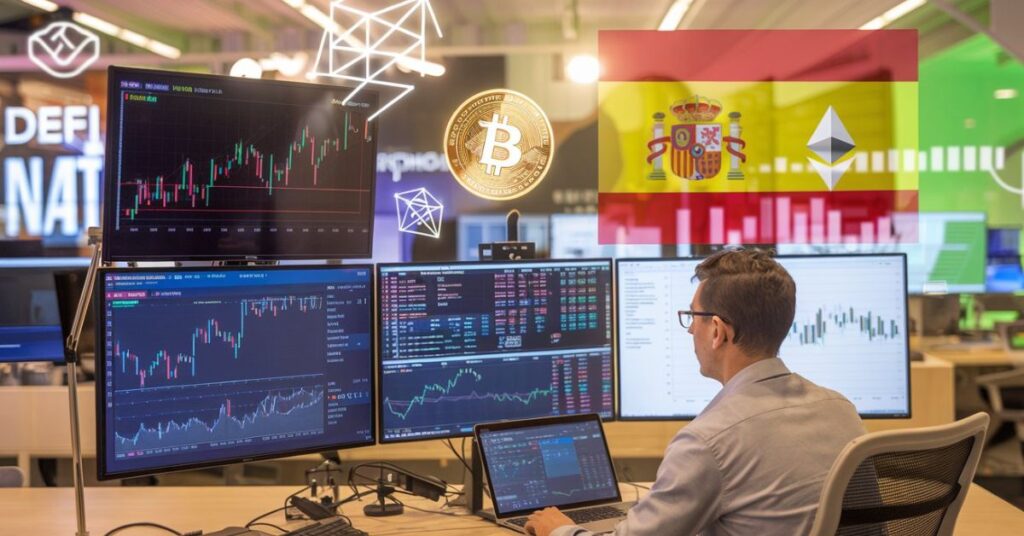Cryptocurrencies have become one of the most talked-about investments in the world today. From casual investors to serious traders, everyone is paying attention. But for Muslims, one big question remains: Is crypto trading halal?
Platforms like Prime XBT offer reliable tools and trading options for exploring crypto markets. They’re trusted platforms that support a wide range of crypto assets with strong security. For Muslims seeking ethical investments, using a stable platform is key to making responsible choices. So, join PrimeXBT today! Use promo code PRIMEOTT to receive a +7% bonus on your deposit.
In this article, we’ll explore crypto trading through the lens of Islamic finance. We’ll cover the principles of halal investing, what scholars say, and practical tips. Whether you’re a beginner or already trading, this guide will help you navigate crypto while staying true to your faith.
Cryptocurrency and Crypto Trading

Cryptocurrency is a form of digital or virtual money that operates on blockchain technology. Unlike traditional currencies, cryptocurrencies are decentralized, meaning no government or central authority controls them. Popular examples include Bitcoin, Ethereum, and Litecoin.
Crypto trading refers to buying and selling digital currencies to make a profit. Traders use different strategies, such as day trading, swing trading, or holding for the long term. Crypto markets are known for being volatile—prices can rise or fall dramatically quickly.
There are also various trading types. Spot trading involves buying crypto at current market prices. Margin trading uses borrowed funds and can increase both gains and risks. Futures trading involves betting on the future price of a cryptocurrency, which can be complex and speculative. Anyone who wants to assess whether their investment method aligns with Islamic principles needs to know these forms.
Core Principles of Islamic Finance
Islamic finance is based on ethical and moral guidelines prioritizing fairness, transparency, and social responsibility. Such as:
1. The Prohibition of Riba (Interest)
One key principle of Islamic finance is the prohibition of riba (interest). Riba refers to any guaranteed profit on a loan. Conventional finance often involves charging interest, but Islam forbids this. Charging interest is seen as exploitative and unjust. In Islamic finance, profits should come from actual economic activity, not interest.
Investments must be tied to productive assets or business activities. Earning money without taking any risk is not allowed. Any financial product involving riba is considered haram (forbidden). Muslims are encouraged to avoid transactions involving interest, such as traditional savings or loans.
2. The Prohibition of Gharar (Excessive Uncertainty)
The second principle is the prohibition of gharar, meaning excessive uncertainty. Islamic finance requires transparency and clarity in all transactions. Investments should not be made where the terms are unclear or uncertain. When the risk is disproportionate, the transaction may be deemed unethical.
In crypto trading, speculative activities like margin trading may involve gharar. These practices involve high risk and lack clear terms. Contracts or investments must be clear and understood by all parties involved. Gharar can lead to financial instability, so it’s avoided in Islamic finance. This ensures fairness and reduces the chance of exploitation.
3. The Requirement for Tangible Assets or Intrinsic Value
Islamic finance emphasizes that investments must have tangible assets or intrinsic value. Investments should be linked to real-world goods, services, or assets. This principle avoids speculative, intangible assets that lack real value. The focus is on productive investments that contribute to society. For an investment to be compliant, it must serve a practical purpose.
Cryptocurrencies without tangible backing or a real-world use case may be problematic. However, they could be acceptable if they serve a useful purpose or are backed by assets. This principle ensures that investments are grounded in reality and not just speculation.
Halal vs Haram: Evaluating Crypto Through an Islamic Lens

When evaluating whether crypto trading is halal or haram, it’s essential to look at the nature of cryptocurrencies and how they are traded. Islamic scholars have differing opinions on this issue, but the core question is whether crypto trading complies with Islamic financial principles.
Arguments For Crypto Being Halal
- Decentralization: Cryptocurrencies like Bitcoin and Ethereum are decentralized, meaning a central authority doesn’t control them. This aligns with Islamic principles that promote fairness and equity in financial transactions.
- Scarcity and Value: Cryptocurrencies, especially Bitcoin, have a limited supply, mimicking precious metals like gold. This inherent scarcity adds value, making them more akin to assets traditionally viewed as halal.
- Potential for Financial Inclusion: Cryptocurrencies can provide financial access to individuals in areas where traditional banking is unavailable. This aligns with the Islamic principle of promoting economic justice and inclusivity.
Arguments Against Crypto Being Halal
- Speculation and Gharar: Many forms of crypto trading, such as day trading or margin trading, involve high levels of speculation. This uncertainty and risk are considered gharar, making such activities potentially haram.
- Use in Haram Activities: Cryptocurrencies are sometimes used for illegal activities, like money laundering or gambling. Islamic law forbids involvement in any activity that supports haram practices.
- Lack of Tangible Backing: Cryptocurrencies do not always have physical backing or a straightforward, inherent utility. This lack of tangible value can be seen as a violation of Islamic principles that require investments to be grounded in tangible assets.
Scholarly Opinions on Crypto Trading in Islam
The debate over whether crypto trading is halal or haram has garnered significant attention from Islamic scholars. While some view it as permissible, others have concerns based on Islamic financial principles. Let’s explore some of the differing opinions within the Muslim scholarly community.
Opinions Supporting Crypto as Halal
Some scholars argue that cryptocurrencies are halal for the following reasons:
- No Riba Involved: Since cryptocurrencies do not involve interest or loans with guaranteed returns, they do not violate the prohibition of riba. This makes them compatible with Islamic financial principles.
- Potential for Ethical Investment: Supporters argue that cryptocurrencies offer new opportunities for ethical investments. Cryptos such as Bitcoin and Ethereum are decentralized, making them resistant to centralized control, which aligns with the Islamic principle of avoiding monopolistic practices.
- Shariah-Compliant Cryptocurrencies: Some scholars believe that there are cryptocurrencies and blockchain-based projects designed to respect Islamic law. These cryptocurrencies are built to avoid interest and speculative risk, making them permissible for Muslim traders.
Opinions Against Crypto as Halal
Other scholars express concerns over the permissibility of crypto trading:
- Speculative Nature (Gharar): Many scholars caution against trading cryptocurrencies due to the speculative nature of their markets. The volatility and uncertainty surrounding crypto prices are seen as forms of gharar, which Islam prohibits.
- Lack of Tangible Backing: Some argue that since most cryptocurrencies don’t have physical assets backing them, they fail to meet the Islamic requirement for investments to be tied to tangible goods or services.
- Association with Haram Activities: Cryptocurrencies have been linked to illegal activities such as money laundering and gambling. Since Islamic law forbids involvement in such activities, this is a concern for scholars.
Middle Ground Opinions
A few scholars suggest a middle-ground approach. They acknowledge that while cryptocurrencies may have some speculative risks, they can still be traded under certain conditions:
- Explicit Intent: If the intention behind trading crypto is not speculative but for long-term investment or supporting a blockchain project with tangible benefits, it might be halal.
- Avoiding Speculative Trading: Scholars who support crypto trading suggest avoiding high-risk activities like margin trading or futures contracts involving excessive uncertainty and leverage.
Types of Crypto Assets and Their Shariah Compliance

Not all cryptocurrencies are created equal, and their compliance with Islamic principles can vary. It is essential to understand the different types of crypto assets available and assess their alignment with Shariah law. Here’s a breakdown of common crypto assets and their potential Shariah compliance:
1. Bitcoin (BTC)
Bitcoin is the first and most well-known cryptocurrency. As a decentralized digital currency, Bitcoin operates without a central authority, aligning with Islamic principles of fairness and equality. Its limited supply (21 million coins) and decentralized nature make it similar to precious metals like gold, which are generally considered halal.
- Compliance: Bitcoin itself does not involve riba (interest) or gharar (excessive uncertainty). It also has real value due to scarcity, which may be considered halal for long-term investment purposes.
- Concerns: Despite its potential for halal investment, Bitcoin’s price’s speculative nature can be a concern for some traders. Extreme volatility in the market may lead to speculative or high-risk trading practices, which may violate Islamic principles.
2. Ethereum (ETH)
Ethereum is a blockchain platform that allows developers to build decentralized applications (DApps) and smart contracts. Ether (ETH) is the native cryptocurrency of the Ethereum network. Like Bitcoin, Ethereum is decentralized and has a limited supply, but its primary value comes from the platform’s ability to power decentralized applications.
- Compliance: Ethereum’s decentralized nature and real-world utility in powering blockchain-based applications make it a potential candidate for halal investment. Its involvement in supporting ethical and productive projects adds to its Shariah compliance.
- Concerns: Some concerns arise from the speculative nature of Ethereum’s price fluctuations. As with Bitcoin, short-term trading and Ether margin trading may be seen as forms of gharar.
3. Stablecoins
Stablecoins are cryptocurrencies designed to maintain a stable value, usually pegged to a fiat currency like the US dollar. Examples include Tether (USDT), USD Coin (USDC), and Binance USD (BUSD). The stability of these coins can make them attractive to traders looking to avoid the volatility of other cryptocurrencies.
- Compliance: Stablecoins may be considered halal as long as they are not associated with interest-bearing activities or speculative trading. They represent a digital form of fiat currency, which doesn’t inherently conflict with Islamic principles.
- Concerns: However, using stablecoins for margin trading or speculative activities can be problematic. If stablecoins are used in transactions that involve excessive uncertainty or risk, they may not comply with Shariah law.
4. Central Bank Digital Currencies (CBDCs)
Central Bank Digital Currencies (CBDCs) are digital currencies issued and regulated by a government’s central bank. Unlike decentralized cryptocurrencies like Bitcoin or Ethereum, CBDCs are controlled by state authorities and typically represent a digital version of a country’s fiat currency.
- Compliance: CBDCs may be considered halal since they are backed by the government and are tied to fiat currencies. However, their Shariah compliance depends on their use and the financial systems they integrate with. They could be permissible if used in a way that complies with Islamic finance principles, such as avoiding riba and gharar.
- Concerns: The use of CBDCs for interest-based systems or speculative financial products may cause concern regarding their compliance with Islamic principles.
5. Tokenized Assets
Tokenized assets are digital representations of real-world assets, such as real estate, commodities, or stocks. These tokens are typically built on blockchain technology and can be traded on cryptocurrency exchanges. Tokenized assets aim to bridge the gap between traditional finance and the world of crypto.
- Compliance: If accurate, tangible assets back tokenized assets and do not involve riba or speculative trading, they could be deemed halal. For example, tokenized gold or real estate may comply with Islamic finance principles if they represent real value.
- Concerns: If tokenized assets are used in speculative trading or high-risk investments, they could be considered haram due to the uncertainty involved.
How to Trade Crypto Responsibly in Line with Islamic Principles

For Muslims interested in trading cryptocurrencies, it’s essential to approach it responsibly and in compliance with Islamic principles. Here are some guidelines to ensure your crypto trading activities are halal:
1. Avoid Speculative Trading (Gharar)
One of the main concerns about crypto trading is the speculative nature of many trades. Day trading, margin trading, and futures contracts all involve significant levels of uncertainty and risk. These forms of trading are often seen as forms of gharar (excessive uncertainty), which Islam forbids.
To ensure compliance with Islamic principles, avoid trading strategies that rely on price speculation or take on excessive risk. Instead, focus on long-term investments or buy-and-hold strategies that align with the idea of investing in assets with real-world value.
2. Invest in Tangible, Shariah-compliant projects
Islamic finance requires investments to be backed by tangible assets or services with intrinsic value. When trading crypto, consider investing in projects with clear, practical use cases or supporting real-world products.
Some blockchain projects, such as decentralized finance (DeFi) platforms or eco-friendly cryptocurrency initiatives, may be built on solid use cases. Ensure that the projects you invest in align with Islamic ethics, avoid speculative risks, and promote tangible benefits.
3. Avoid Cryptos Associated with Haram Activities
Cryptocurrencies have been used for illegal activities, such as money laundering, gambling, and financing illicit operations. Engaging in crypto trading that supports such activities would be considered haram.
Before investing in any cryptocurrency, research its reputation and the activities it is associated with. Stick to transparent, legitimate projects that contribute positively to society.
4. Use Trusted Platforms and Avoid Interest-Based Systems
When trading crypto, use transparent platforms free of interest-based systems, such as Prime XBT. Ensure that your exchange does not engage in riba or unfair practices. Many platforms offer low fees, strong security features, and educational resources to help you navigate the crypto market responsibly.
It’s essential to ensure that your platform is regulated, offers clear terms, and doesn’t promote leveraged or margin trading that could increase unnecessary risk.
5. Charity and Zakat on Crypto Profits
Finally, as with any form of wealth in Islam, zakat (charity) is essential. Muslims are required to give a portion of their wealth to those in need. If you profit from crypto trading, remember to set aside the required amount for charity.
Ensure that your profits from crypto are managed responsibly, and make regular contributions to help those less fortunate.
Conclusion
While the debate around crypto trading in Islam continues, it’s clear that responsible trading can align with Islamic principles. By focusing on ethical investments, avoiding speculative practices, and using trusted platforms, Muslims can engage in crypto trading in a halal way; for those looking to enhance their trading strategies, On Tilt Trading Store offers a variety of risk management tools designed to help you trade wisely and securely. Explore our tools to optimize your trading experience and ensure better decision-making in the volatile crypto market.



